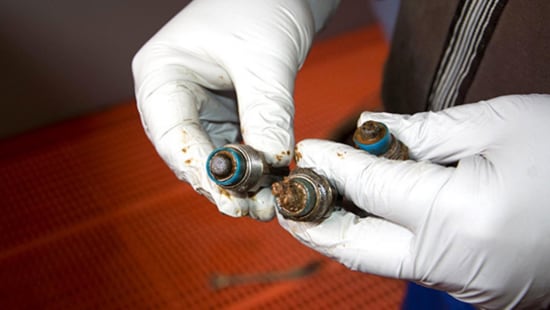
Poultry Drinking Water Treatment
Water helps chickens regulate body temperature, digest food and eliminate toxins. At normal temperatures, chickens consume at least twice as much water as feed, making poultry drinking water treatment as important as cleaning and disinfecting surfaces.
Contaminated drinking water can compromise the immune system of chickens and your poultry house hygiene efforts. It will cause stress and disease due to constant exposure to infection. Salmonella, E. coli, Streptococcus and coccidiosis can spread easily throughout the poultry house and each drinking nipple where the water is consumed.
The fastest way a pathogen can spread disease in a poultry farm and affect the majority of your flock is through the drinking water. Conversely, when drinking water is treated appropriately, it helps you have healthy chickens.

Poultry Drinking Water Acidifier and Disinfection
Acidification and disinfection improve the quality of poultry drinking water by lowering the bacterial load and the risk of Salmonella and Campylobacter. These treatment methods lower pH in the chickens' stomachs which increases protein digestibility, feed conversion and weight gain.
We advise using poultry water treatment products with synergistic formulations of multiple organic acids. These organic acids have superior buffering capacities and decrease pH slowly.
Active Compounds for Poultry Drinking Water

Chlorine Dioxide

Peracetic Acid
Peracetic acid (or peroxyacetic acid) is a combination of hydrogen peroxide and acetic acid. It is also a strong oxidizer that is effective against a wide range of pathogens and is used to disinfect poultry production water lines. Peracetic acid improves the bacteriological quality of water and can eliminate biofilms, resulting in an improved sanitary status of the flock.
Programs, Products, Equipment and Services
Explore Our Poultry Drinking Water Offerings
We couldn't find any results for "".

Cleaning and Disinfecting Poultry Water Lines
Everything that goes through a water line leaves residue. Water leaves behind minerals, organic acids leave organic matter, medication and vaccines can leave carriers or precipitate.
All these elements form a slime called biofilm. Biofilm is a mix of organic and inorganic matter in which microbes are multiplying. It can contain pathogens like Salmonella and E. coli which are sources of contamination for drinking water. Biofilm decreases water flow and can block the drinking nipples as well as neutralize medicine and vaccines which leads to under-dosage or poor results.
Biofilm inside water lines is a mix of organic and inorganic ingredients in which microbes are multiplying. It can block the nipples, reduce the pipe volume by 70–80% and significantly reduce the water flow from the drinking system.
To address biofilm and its negative effects, Ecolab offers a range of cleaning and disinfection products that help keep water lines clean and animals healthy.



